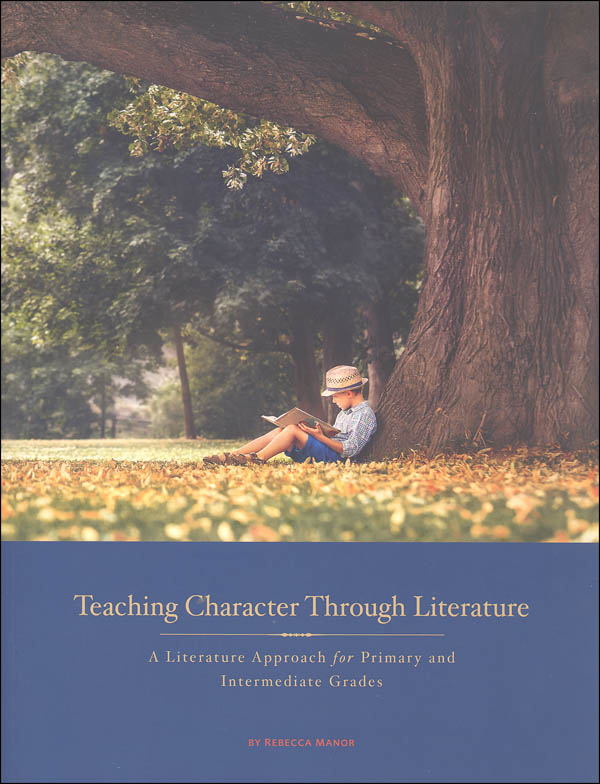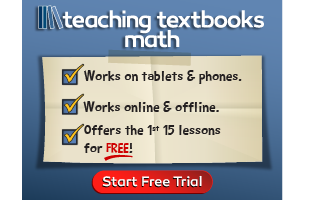Teaching Character Through Literature: A Literature Approach for Primary and Intermediate Grades serves as a teacher guide for using real books to teach biblically-based character traits. The guide’s author, Rebecca Manor, provides brief explanatory notes at the beginning, then the main part of the guide has two sections with recommendations and activities. The first section is for students in the primary grades (roughly kindergarten through third grade), and the second section is for students in the intermediate grades (roughly fourth through sixth).
Primary Grades
The teacher guide begins with annotated recommendations of Manor’s favorite authors and her favorite books for students in the primary grades. After these lists are lessons with specific books to read along with discussion questions that help focus children's attention on virtues and positive character traits.
For the primary grades, there are 13 lessons that will each take at least one or two sessions to complete. Both the readings from the Bible and questions that draw parallels between biblical stories and the stories in the children’s books play a major role in these lessons.
For instance, the second lesson directs you to begin by reading aloud Genesis 1:26-31 which is about the creation of man. Then you read When God Made You by Matthew Paul Turner. Discussion questions in the guide help children to reflect on being made in the image of God, the idea that all people are made in the image of God, and how that should influence the way we treat one another. A few other questions have to do with creativity as a reflection of God’s nature in us. The lesson ends by instructing students to write out Genesis 1:27 and memorize it.
Other books featured in the primary lessons are Time of Wonder by Robert McCloskey, Found: Psalm 23 by Sally Lloyd-Jones, The Clown of God by Tomie de Paola, Wilfrid Gordon McDonald Partridge by Mem Fox, Seven Silly Eaters by Mary Ann Hoberman, Rachel and Obadiah by Brinton Turkel, When I Was Young in the Mountains by Cynthia Rylant, Miss Rumphius by Barbara Cooney, Brave Irene by William Steig, Obadiah the Bold by Brinton Turkle, and Last Stop on Market Street by Matt de la Peña.
These selected books are a mix of a few with explicitly religious themes and others that are secular. However, every lesson for the primary grades includes scripture verses and discussion about how they apply.
Intermediate Grades
For the intermediate grades, Manor provides her annotated lists of favorite authors and favorite titles, again followed by the lessons. There are 50 lessons for the intermediate grades, so there is substantially more material than in the first section. The books used for these lessons are The Whipping Boy by Sid Fleischman, Fables by Arnold Label, The Hundred Dresses by Eleanor Estes, The Family Under the Bridge by Natalie Savage Carlson, Call it Courage by Armstrong Sperry, The Selfish Giant by Oscar Wilde, The Happy Prince by Oscar Wilde, A Gathering of Days by Joan W. Blos, Benjamin Franklin by Ingrid and Edgar D’Aulaire, Caddie Woodlawn by Carol Ryrie Brink, The Door in the Wall by Marguerite de Angeli, The Little Prince by Antoine de Saint-Exupery, and The Green Ember by S.D. Smith. (Beautiful Feet Books sells literature packs for both the primary and the intermediate levels, but you should be able to borrow most of these books from the library.)
Most of these books for the intermediate grades will take more than one sitting to read, and the lessons break down the reading with assignments for specific pages or chapters to be read for each lesson. One exception is the final lesson which leaves it up to you to determine the pacing for reading The Green Ember.
The intermediate lessons are not always dependent upon direct scripture connections. For example, Lesson 29 is one of four lessons for the book Benjamin Franklin. The other four lessons include specific scripture verses, but the single question for this lesson reads: “Consider what it means to live a life of service and good citizenship. How did Franklin accomplish this?” For the short fables that are interspersed between the longer books, the lesson plans say only, “Discuss the morals at the end of each fable.” Even though some of the questions seem to serve as comprehension questions, they all point toward actions or thoughts that reveal positive or negative character traits.
Toward the end of the book, Manor includes two more lists: a list of her favorite books that adapt Bible stories for children and a list of books for further reading by parents and teachers. The last four pages of the book have decorated Bible memory-verse cards that can be cut out and used by students.
Parents or teachers can select from the lessons rather than using all of them, although I particularly like the flow of lessons for the intermediate grades that intermixes short fables and a few short books with lengthier books.
Summary
I appreciate this scripture-based approach to character training because it helps children learn that acting virtuously is not always easy, and there are temptations to do the opposite. In addition, helping children recognize that we are all made in the image of God makes it easier for them to understand the requirement that we exhibit love for one another in all of our actions.









